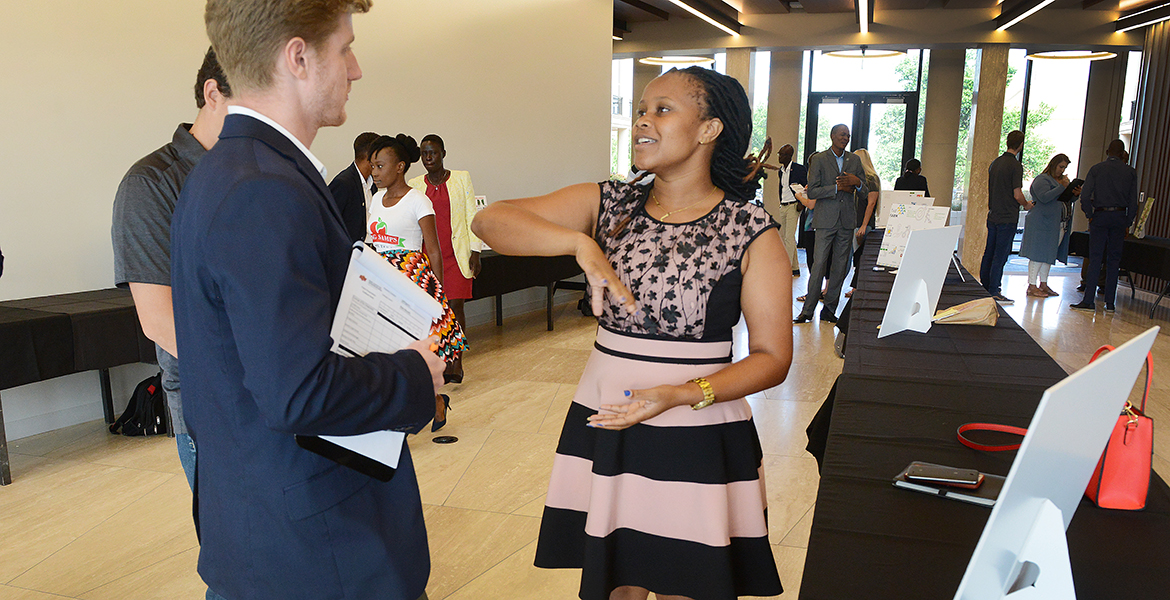
Young African business leaders learn at OSU
Tuesday, July 30, 2019
Mercy Mmari started her own business in her native Tanzania as part of a dream of being a businessperson and helping women in Africa as a food processing consultant. But she never realized the extent of the possibilities for her company until she visited Oklahoma State University this summer.
“OSU has made me realize the feasibility of my business and the change it can bring to my community,” she said. “It never sounded so real because I had never seen something like that until I came to OSU.”
Mmari was one of 25 women and men from 15 sub-Saharan African nations who spent much of June and July on the OSU campus as part of the 2019 Mandela Washington Fellows Institute for Young African Leaders. Along with OSU, the fellowship is held on university campuses across the country with more than 675 Africans spending their summers in the United States learning skills to successfully start, manage and grow businesses in their native counties. The institute at OSU was made possible by the Spears School of Business and the College of Agricultural Sciences and Natural Resources with faculty and staff from both teaching courses and leading programs.
This was the third year that OSU has hosted Mandela Washington Fellows who learned how successful American businesses and entrepreneurs work, said Dr. Craig Watters, a clinical associate professor in entrepreneurship and director of The Riata Institute for Global Social Entrepreneurship and the fellowship’s OSU academic director.
“These are young entrepreneurs in their countries, women and men aged 18 to 35,” he said. “These are all small businesses and most of these entrepreneurs have never seen their ventures in the context of industry and target markets and competition and growth, so they’re learning business practices.”
Mmari sees the potential of food processing to help women producers realize a higher profit from their work by joining together to process and sell their own food products, such as baby food made from home-grown produce. She provides associates with a commercial kitchen and training and helps them with marketing.
“My business is building capacity of women with small-scale processing and I am leaving OSU full of positive energy and power to act,” she said.
Adji Zamtato Gane-Bang came to OSU to learn how to expand his agri-business growing cashews in Chad. He plans to market the nuts and wants to plant more trees to earn more income and as a way to slow the spread of the Sahara Desert in his north African country.
“The virtue of the cashew tree is that it grows well in Chad and is good to plant to slow down desertification that is a big problem in our country,” he said. “In every discussion we’ve had (at OSU) I’ve learned about innovation and creativity, but above all something that I have learned is success will not come today. You have to persevere and you will reach your goals.”
Following their six weeks at OSU, the Mandela Washington Fellows joined their fellow participants from universities across the United States in Washington, D.C., for a national conference before returning to their homes in Africa. The Mandela Washington Fellowship is sponsored by the U.S. State Department and the International Research & Exchange Board (IREX), a nonprofit specializing in global education and development.
Media contact: Jeff Joiner | Communications Coordinator | 405.744.2700 | jeff.joiner@okstate.edu
